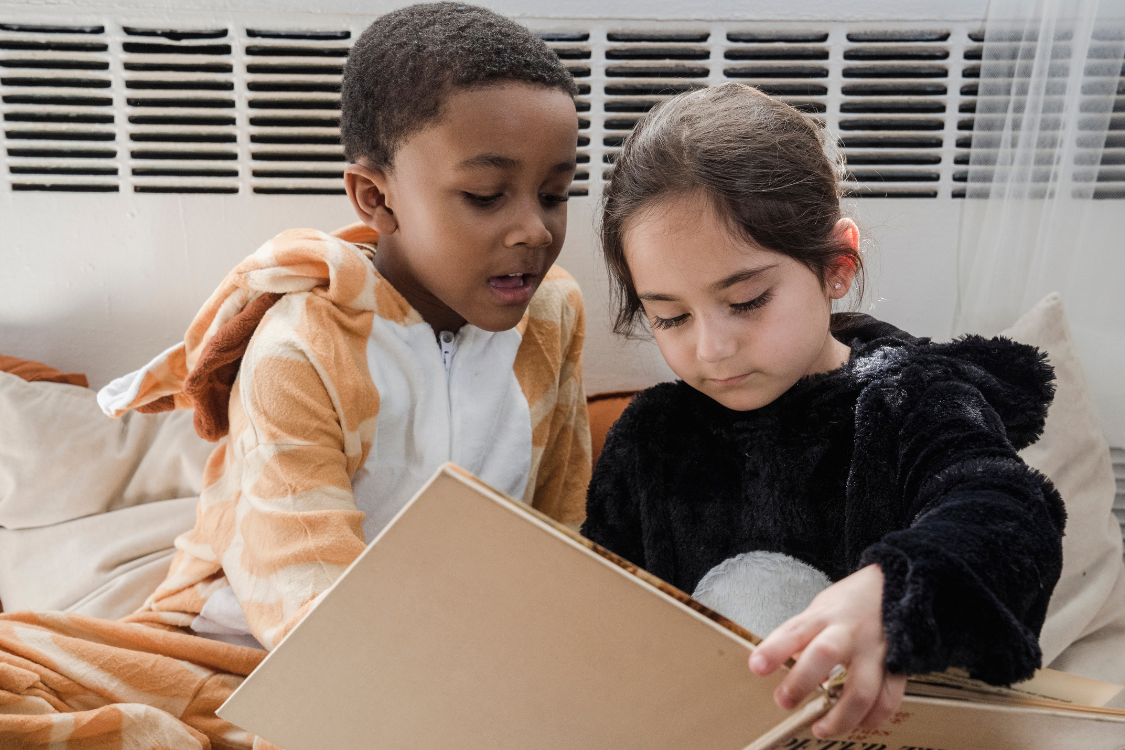Reading comprehension—the ability to understand, process, and connect with text—forms the cornerstone of successful reading. While many parents focus heavily on helping their child sound out words, true reading mastery happens when those decoded words transform into meaningful understanding. For children struggling with early reading skills, developing strong comprehension abilities can make the difference between reading frustration and reading enjoyment.
The Science Behind Reading Comprehension
Reading comprehension isn’t just about understanding individual words—it’s about connecting those words into meaningful ideas. According to reading research, comprehension is one of the critical “Big 5” reading skills alongside phonemic awareness, phonics, fluency, and vocabulary. These elements work together synergistically to create proficient readers.
Comprehension happens when children successfully:
- Decode words accurately (using phonics skills)
- Process what those words mean (vocabulary knowledge)
- Connect ideas within and across sentences (language processing)
- Relate text information to what they already know (background knowledge)
- Monitor their own understanding (metacognition)
For young readers advancing in early literacy, comprehension difficulties often stem from spending too much mental energy on decoding. When a child laboriously sounds out “c-a-t” as “cat,” they may have little cognitive capacity left to think about what cats do or how they fit into the story. This is why balanced reading instruction that strengthens all reading components is essential.
Why Background Knowledge Matters for Comprehension
One often overlooked aspect of comprehension is the role of background knowledge. Children come to reading with varying experiences and information about the world. This knowledge base significantly impacts how they interpret and understand text.
Consider a child reading about penguins who has never seen snow. Without background knowledge about cold climates, they’ll struggle to fully comprehend descriptions of penguin habitats. Similarly, vocabulary limitations can hamper understanding—a child unfamiliar with the word “waddle” misses an important aspect of how penguins move.
Parents can support comprehension by helping children build extensive background knowledge through:
- Diverse life experiences (museums, parks, community events)
- Conversations about how things work
- Exposure to different types of books and media
- Discussion of new concepts and vocabulary before reading
This foundation of knowledge gives children mental “hooks” on which to hang new information they encounter in reading, making comprehension significantly easier.
Teaching Comprehension: Strategies That Work
Fortunately, research shows that explicit instruction in comprehension strategies significantly improves children’s understanding of text. These strategies aren’t innate—they must be taught, modeled, and practiced regularly.
Effective comprehension strategies include:
Questioning: Teaching children to generate questions before, during, and after reading helps them engage actively with text. Start with simple questions (Who? What? Where?) and gradually introduce more complex ones (Why? How? What if?).
Visualizing: Encouraging children to create mental images while reading helps them connect emotionally with text and remember information more effectively. Ask your child, “What do you see in your mind right now?” while reading together.
Making Connections: Help your child connect text to their personal experiences (text-to-self), other books (text-to-text), and the wider world (text-to-world). These connections deepen understanding.
Summarizing: Teaching children to identify important information and restate it in their own words reinforces comprehension and memory. Start with summarizing short paragraphs, then gradually increase to longer sections.
Predicting: Making informed guesses about what might happen next in a story based on text clues keeps children engaged and thinking ahead—a hallmark of active reading.
The Role of Discussion in Building Comprehension
Conversation plays a crucial role in building comprehension skills. When parents and children discuss books together, they’re doing much more than enjoying a story—they’re actively constructing meaning and practicing important thinking skills.
Quality book discussions involve:
- Open-ended questions that require thoughtful responses
- Encouragement to explain thinking and reasoning
- Exploration of characters’ feelings and motivations
- Connections to real-world situations and experiences
These conversations model the internal dialogue that proficient readers have with themselves while reading independently. Over time, children internalize this dialogue and begin to automatically ask themselves questions, make connections, and analyze text as they read.
Address Comprehension Difficulties
If your child struggles with reading comprehension, consider these potential causes:
Decoding Challenges: Children who expend tremendous effort sounding out words have little mental energy left for comprehension. Strengthen phonics skills through systematic practice.
Vocabulary Limitations: Unknown words create gaps in understanding. Build vocabulary through rich conversation, read-alouds, and direct teaching of new words.
Attention Issues: Some children can decode perfectly, but don’t maintain focus on meaning. Break reading into smaller chunks and regularly check understanding.
Limited Background Knowledge: Children need context to understand new information. Build knowledge through diverse experiences and conversations.
Lack of Engagement: Children who aren’t interested in what they’re reading often don’t try to understand it. Find high-interest materials that motivate deeper engagement.
Build Comprehension Skills Every Day
Comprehension isn’t just about reading—it’s about understanding language in all its forms. Parents can build comprehension skills through everyday activities:
- Tell stories about your day and ask your child to share theirs
- Explain how things work as you use them (appliances, tools, etc.)
- Make predictions while watching movies or TV shows
- Discuss the meaning of unfamiliar words encountered in conversation
- Talk about characters’ feelings and motivations in favorite stories
- Ask “why” questions and encourage detailed responses
Remember that comprehension develops gradually, with continued exposure to rich language experiences and thoughtful discussion. Progress may seem slow at times, but consistent practice yields significant results.
Reading Comprehension: The Key to Lifelong Learning
Strong comprehension skills don’t just help children succeed in reading—they provide the foundation for all academic learning. When children understand what they read, they can learn independently, explore new interests, and build knowledge across subjects.
At Reading.com, we believe comprehension is the ultimate goal of reading instruction. Our evidence-based approach integrates all five essential reading components, teaching children not just to decode words but to understand, analyze, and connect with text in meaningful ways.
Ready to help your child build stronger comprehension skills? Download the Reading.com app today for a 7-day free trial and discover how our systematic, research-based approach can transform your child’s reading experience.





